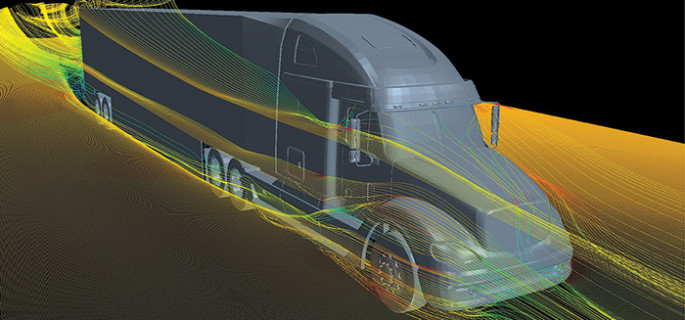$300K Supercomputing Grants up for Grabs for Manufacturers from DOE

Come early March, grants worth $300,000 are up for grabs for manufacturers giving year-long access to national lab supercomputing cycles and half the staff hours of computer scientists with domain expertise under a U.S. Department of Energy program called High Performance Computing for Manufacturing (HPC4Mfg).
In Phase 1 of the program, manufacturers as large as General Electric and Procter & Gamble, and as small as ZoomEssence, won grants to research the reduction of energy consumed in paper-making, cutting coke usage in steel-making, making lighter-weight aircraft and automobiles parts and developing a cloud-based welding simulation tool for industry use.
To apply for an award, companies should monitor the HPC4Mfg site for the Phase 2 grant announcement. Ten grants will be awarded.
The program, which is led by Lawrence Livermore National Laboratory (LLNL) and includes Lawrence Berkeley (LBNL) and Oak Ridge National Laboratories (ORNL), gives manufacturers access to some of the most powerful HPC systems in the world.
HPC4Mfg is part of President Obama's National Strategic Computing Initiative, which calls for public-private partnerships to increase industrial adoption of HPC. Selected projects will apply modeling, simulation and data analysis to industrial products and processes to lower production costs and accelerate development of new clean energy technologies.
“On the industry side it can be hard to know what capabilities exist and how to work with them,” Peg Folta, director of the HPC4Mfg program at LLNL, told EnterpriseTech. “Companies write proposals, and our program people understand the expertise, the scientists and computing capabilities within the national labs that make for the best match for the companies – we’re kind of a matchmaker for industry.”
Folta emphasized that it’s not just the supercomputing cycles but the computer science support that’s valuable to manufacturers. “These are people who have worked with the computers and the computer codes and applied them to a wide variety of problems,” she said. “That kind of expertise is hard to find outside of the national labs.”
While companies that win awards will be able to protect their IP involved in the projects, they will be expected to share their success stories publicly so that other companies in their industries will be able to benefit.
Projects selected for Phase 1 of the program include:
- GlobalFoundries will collaborate with LBNL to optimize the design of ultra-low power transistor device architectures.
- The Lightweight Innovations for Tomorrow Consortium in Michigan will partner with LLNL to develop a model to predict mechanical properties of Al-Li forged alloy.
- ZoomEssence will partner with LLNL to design new industry spray drying technology.
- United Technologies will work with ORNL and LLNL to design simulation tools for developing light-weight aerospace parts.
- Procter & Gamble will partner with LLNL to reduce paper pulp in products by 20 percent.
- General Electric and ORNL will work on the local control of melt pool and microstructure in additive manufactured parts. GE also will partner with ORNL and LLNL to improve the efficiency and component life of aircraft engines through design optimization.
- PPG Industries will partner with LLNL to model thermo-mechanical stresses in glass fibers to understand fracture-failures. The two organizations will also work together to develop a reduced CFD model of a glass furnace to make line adjustments in near real-time.
- The Ohio Supercomputer Center and the Edison Welding Institute will partner with ORNL to design cloud-based advanced welding simulation tools.











